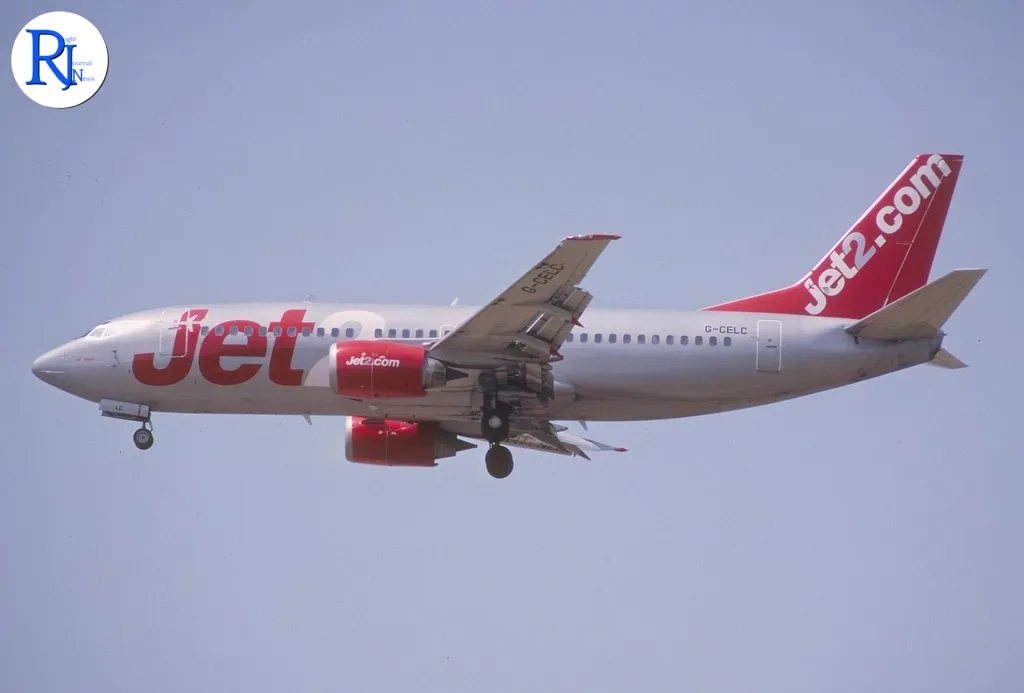Jet2’s CEO, Steve Heapy, has called on government ministers to convert their commitment to sustainable aviation fuel (SAF) into tangible actions. Heapy emphasised the urgent need for a revenue certainty mechanism to support the airline industry’s transition to greener fuels. His remarks come amid growing pressure on the aviation sector to reduce its carbon footprint and align with global environmental targets.
Heapy’s comments highlight the airline industry’s challenges in adopting sustainable practices while maintaining profitability. He expressed concerns that without governmental financial structures, airlines might struggle to invest in SAF, which is crucial for reducing carbon emissions.

Government’s SAF Commitment Under Scrutiny
The call to action from Jet2’s CEO comes after recent discussions within the government about the role of SAF in achieving net-zero emissions by 2050. The UK has set ambitious targets to decarbonise aviation, yet industry leaders argue that progress has been slow.
In recent years, the government has announced several initiatives aimed at boosting SAF production and usage. However, industry experts claim that these measures lack the necessary financial backing to encourage widespread adoption. “We need more than words; we need a clear and actionable plan,” Heapy stated. The absence of a revenue certainty mechanism, which would guarantee a steady income for SAF producers, is seen as a significant barrier to scaling up production.
Challenges in SAF Adoption
The adoption of SAF is fraught with challenges, including high production costs and limited supply. Currently, SAF is significantly more expensive than traditional jet fuel, making it economically unviable for many airlines without subsidies or incentives.
Industry analysts note that a strong governmental framework could bridge this gap. “Governments need to provide financial incentives that make SAF competitive,” said aviation analyst Jane Smith. Without such support, airlines may be unable to commit to long-term investments in SAF infrastructure, hindering progress towards sustainability goals.
Expert Insights on Environmental Impact
Experts emphasise the environmental benefits of SAF, which can reduce lifecycle carbon emissions by up to 80% compared to conventional fuels. As the aviation industry accounts for approximately 2-3% of global carbon emissions, increasing SAF usage could significantly impact global emission reduction efforts.
Dr. Alan Green, an environmental scientist, noted, “Transitioning to SAF is one of the most effective ways for airlines to reduce their carbon footprint. However, the current economic model needs to change to make this transition viable.” His comments reflect a broader consensus that government intervention is essential to overcoming financial and logistical hurdles.
Financial Incentives and Policy Frameworks Needed
To achieve widespread SAF adoption, industry leaders are calling for comprehensive policy frameworks that include financial incentives, such as tax breaks and subsidies. These measures could lower the cost of SAF production and encourage airlines to increase their usage.
The aviation sector also seeks clarity on long-term government strategies and timelines. “We need a roadmap that outlines clear steps and deadlines,” Heapy added. This sentiment is echoed by other industry stakeholders who argue that uncertainty hampers investment and innovation.
Potential Economic and Environmental Impacts
Implementing a revenue certainty mechanism and other financial incentives could stimulate the growth of the SAF market, creating jobs and driving economic development. Moreover, it would place the UK at the forefront of sustainable aviation technology, setting a precedent for other countries.
As governments worldwide grapple with climate change, the aviation industry’s transition to SAF represents a critical step towards achieving international environmental commitments. “The benefits extend beyond the environment; there are economic opportunities in leading the green transition,” concluded Dr. Green.
The aviation sector’s call for action underscores the urgent need for government support in realising sustainable aviation goals. As discussions continue, stakeholders remain hopeful that decisive action will follow, paving the way for a greener future in aviation.

